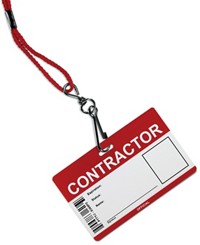Advertisement
Grab your lab coat. Let's get started
Welcome!
Welcome!
Create an account below to get 6 C&EN articles per month, receive newsletters and more - all free.
It seems this is your first time logging in online. Please enter the following information to continue.
As an ACS member you automatically get access to this site. All we need is few more details to create your reading experience.
Not you? Sign in with a different account.
Not you? Sign in with a different account.
ERROR 1
ERROR 1
ERROR 2
ERROR 2
ERROR 2
ERROR 2
ERROR 2
Password and Confirm password must match.
If you have an ACS member number, please enter it here so we can link this account to your membership. (optional)
ERROR 2
ACS values your privacy. By submitting your information, you are gaining access to C&EN and subscribing to our weekly newsletter. We use the information you provide to make your reading experience better, and we will never sell your data to third party members.
Careers
Prescription For Success In Sales
In a declining job market for pharmaceutical sales reps, a science degree can help open doors
by Linda Wang
February 19, 2007
| A version of this story appeared in
Volume 85, Issue 8

AS CORY HICKS WAITED to see the doctor, he looked around and made a mental note of the patients: Age, body type, ethnicity. That information would help him tailor his message, he told me as we sat in the waiting room.
He said he also thought about the doctor he was seeing and what kind of personality he had. This doctor was a no-frills kind of guy, and Hicks knew he needed to get straight to the point.
In January, I joined Hicks for a day of sales calls to give C&EN readers an inside look at pharma sales careers.
While we waited to see the doctor, Hicks pointed out two reps sitting on the other side of the waiting room. They were selling a hypertension drug from a competing company, he said. They, too, appeared to be surveying the room.
When the receptionist called us in to see the doctor, I looked at my watch and realized we had been waiting for 30 minutes. We waited inside for another 15 minutes before catching the doctor between patients. Thirty seconds later, Hicks was done-his message on the benefits his company's drug delivered.
After 45 minutes of waiting, 30 seconds with the doctor was not much, but to Hicks, it was a small breakthrough. That particular doctor was one of his toughest clients. The meeting took a promising turn when they learned they were both die-hard New York Yankees baseball fans.
After five years of knocking on doctors' doors, Hicks has mastered the art of pharmaceutical sales. He knows that every doctor is different, and what works for one may not work for another. Sometimes, he just needs to find some common ground.
In pharmaceutical sales, success comes from knowing the science, understanding people, and forming relationships. Sales reps are the frontline workers contributing to a pharmaceutical company's bottom line. They become experts on their company's drugs and use their knowledge to influence a doctor's prescribing habits.
In the past 10 years, the number of pharmaceutical sales representatives in the U.S. has tripled, from 35,000 in 1995 to 100,000 today, says Bob Davenport, vice president and managing director for the consulting firm Hay Group. With the good pay, flexible hours, and the strong business foundation it provides, it's no wonder that pharmaceutical sales is a popular job.
Seven Strategies For Success
For those considering a career in pharmaceutical sales, seven executives give their advice.
» Know your disease, product, and other therapies better than the doctor, and tailor the delivery of your knowledge to the doctor's specific need at that moment. - John Constantine, director of global learning support at GlaxoSmithKline
» Demonstrate personal conviction and have boundless initiative. - Bob Davenport, vice president and managing director for the consulting firm Hay Group
» Plan your sales calls seriously. Precall planning orients you and increases your chance of achieving your objectives each day. - Jane Y. Chin, founder and president of Medical Science Liaison Institute
» Be persistent and passionate about learning the latest scientific knowledge, pharmaceutical trends, and healthcare issues to keep up with our rapidly changing industry. - James E. Dutton, president of Certified Medical Representatives Institute
» Provide frequent, accurate, relevant, and timely responses to your customer. - Carolyn Choh Fleming, professor of pharmaceutical marketing, St. Joseph's University
» Be flexible and understand how to relate to each doctor. Not everyone wants to hear your information the same way. - Hieu Hguyen, pharmaceutical sales rep, Forest Laboratories
» Don't take things personally because everyone has bad days and everyone has busy days. - Jennifer Vitale, pharmaceutical sales rep
But the recent announcement by industry giant Pfizer that it is laying off 2,200 sales reps in the U.S. and a significant percentage of its European sales force (C&EN, Jan. 29, page 7)—as well as speculation that other companies will follow suit—has folks in pharmaceutical sales wondering when the ax might fall. "The glory days are probably over for a while," says Davenport, who believes that these cuts in sales forces are heralding a trend that will last several years.
Others are more circumspect. "I don't think that just because Pfizer has made this decision, that it necessarily signals a major sea change in the industry," says John Harrington, vice president for the metabolism business unit at Sanofi-Aventis. "Companies will make decisions based on product opportunities." He says his company has no plans to downsize.
ONE CONCLUSION many people agree on, however, is that too many sales reps are vying for a finite number of doctors. During the past 10 years, when the number of drug reps was tripling, the number of doctors in the U.S. - currently around 800,000 - grew little in comparison, says Carolyn Choh Fleming, a professor of pharmaceutical marketing at St. Joseph's University, in Philadelphia.
"Access to physicians has become very, very difficult," says Fleming, who began her career in the early 1990s as a sales rep. "Now you have to be even more creative in how you go about seeing a doctor."
John Constantine, director of global learning support at GlaxoSmithKline, says the company has about 10,000 reps in the U.S. and about 30,000 reps worldwide. "Right now, the selling model for pharmaceuticals is reach and frequency. Reach as many customers as you can as often as you can," he says. "That's why we have these armies of salespeople out there." Yet, he anticipates that GlaxoSmithKline will be downsizing its sales force within the next five to 10 years.
Davenport believes that "pharmaceutical companies have been irritating the doctors by having so many people calling on them." He says companies have been relying on sheer numbers of physician visits, not on the quality of the sales call. "I definitely feel that it's about time," he adds, referring to the downsizing.
The bright spot in this gloomy forecast for pharmaceutical sales representatives is that people who have science degrees may be in greater demand. "I do think the science degree is back in vogue, when it wasn't 10 years ago," says James E. Dutton, who has bachelor's and master's degrees in animal science and is president of Certified Medical Representatives Institute, a nonprofit educational organization that provides health care representatives with continuing education, professional development, and certification. He adds that many of the drugs being developed today will require people who can understand the underlying science and be able to communicate it.
Harrington agrees. "I think that people who have a high science aptitude and training will be the people we'll look to in the future as part of our sales forces," he says.
Hieu Nguyen has a background that many people would envy. He has a bachelor's degree in biology and a master's degree in molecular and cellular biology from the University of Massachusetts, Amherst. Today, he is a sales rep for Forest Laboratories. He says he realized during graduate school that he was more interested in communicating science than practicing it.
Nguyen says his background has given him an edge in his current position. With his science degrees, he says, "I believe I can understand doctors more than if I didn't have a science background." Furthermore, he has taken a leadership role in helping his colleagues understand the science behind the drugs they sell. He recalls that during sales training, he frequently led study groups and helped explain the material to his colleagues, many of whom don't have science degrees.
Nguyen cautions, however, that having a science degree does not guarantee that someone will make a good salesperson. In fact, many companies require that job candidates have prior sales experience before they will consider hiring them. Nguyen says that when he began searching for a pharmaceutical sales job after graduate school, many companies turned him away. Only after a six-month stint selling wireless devices for T-Mobile did pharmaceutical companies begin to call him back.
Going from science to sales is not always an easy transition. Jennifer Vitale earned a bachelor's degree in chemical engineering from the University of Delaware and worked for a large pharmaceutical company for three years as a chemical engineer before becoming a sales rep for the same company. Vitale, who asked that her company not be named, says one of the hardest parts about being a sales rep is earning a doctor's respect. When she was working as an engineer, she says everyone knew her credentials, but doctors do not know what education or training sales reps bring. "With this job, they have no idea what your background is," she says. "You have to earn their respect. It's not just given to you."
It also takes a thick skin to be a sales rep. Entrepreneur Jane Y. Chin says many scientists are shocked to find out how badly salespeople are treated, sometimes not even with common courtesy. She says it's not unusual for salespeople to be ignored or asked to leave.
"Those are the things that are extremely tough, and it takes a certain personality to deal with it," she continues. "Not everyone can take that treatment day after day after day. It can wear you down if you're not prepared."
Hicks, who has experienced his share of rejection, says you can't take anything personally. He has many good days, too. On the day in January that C&EN spent with him, Hicks made two calls where each doctor gave him more than five minutes of their time and seemed genuinely interested in what he had to say. It's those calls that make sales reps feel good about what they're doing, he says.
Chin advises people to do some soul-searching to determine whether a job as a sales rep is right for them. She counsels against seeing pharma sales as a way to escape a difficult scientific job market or a difficult lab situation. If the long-term career goal is still in science, pharma sales won't work, she says.

FOR THE RIGHT person, however, the job can be a good marriage of science and business. It can also provide a stepping stone to many other opportunities within the pharmaceutical industry.
On the sales side, a rep can become a trainer, a district manager, a regional manager, and eventually a regional vice president. On the marketing side, a sales rep can become a product manager or group director. Opportunities also abound in analytics, finance, marketing operations, and new product development.
Chin, who has a Ph.D. in biochemistry, worked as a sales rep for a year before becoming a medical science liaison, which is a company representative who provides more in-depth scientific information to physicians, pharmacists, and formulary committees. Such a liaison does not have a direct role in sales. The position typically requires an advanced degree, such as a Ph.D., Pharm.D., or M.D.
Today, Chin is founder and president of Medical Science Liaison Institute, an organization that provides training, consulting, and career development services for field-based medical science liaison teams. She credits her experience as a sales rep with giving her a solid foundation in business. "Working in the trenches is one of the best ways to learn about the pharmaceutical business environment," she says.
Arlene J. Kirsch, vice president of managed markets at GlaxoSmithKline, has a Ph.D. in pharmacology and says that in graduate school, she never imagined that she would go into the business side of the pharmaceutical industry. "When I was in the research side of things, I had a misperception of what sales is all about," she says. "I thought being in pharma sales was like being a used-car salesman. I realize now that I was wrong." Ironically, what sold her on the idea of sales was a salesperson who called on her lab. Kirsch worked as a clinical liaison (another name for medical science liaison) before moving into management.
Some sales reps become heads of companies. Terrell G. Herring, for example, began his career as a sales rep and quickly moved into a training position. Today, he is president and chief operating officer of inVentiv Commercial Services, a subsidiary of inVentiv Health. Hicks works for this provider of pharmaceutical services, which offers sales support to pharmaceutical, biotech, and life sciences companies. Herring credits his science background—he has a B.S. in biology—combined with an M.B.A. for opening many doors throughout his career.
"The people who succeed in the pharmaceutical industry are people who have carried a bag at one time or another," says Philip P. Gerbino, president of the University of the Sciences, in Philadelphia. Having "carried a bag," he says, is industry jargon for having been a sales rep. "If you've never carried a bag, you constantly get criticized for not understanding the basics of how the industry runs," he says.
Gerbino, who is a consultant to pharmaceutical companies, continues: "Being a sales rep early on is something that gives you a broad-based exposure to a lot of the business elements of the industry and how and where decisions are made."
A job in pharmaceutical sales can pay well. According to Hay Group's annual sales force effectiveness survey, the average base starting salary in 2006 for all sales reps was $68,600. Bonuses and other incentives bring the average total compensation up to $90,100. Sales reps also get a company car, a computer, and an expense account.
Advertisement
Sales reps come in four types. Primary care physician (PCP) sales reps visit primary care physicians, specialty reps visit specialty physicians, hospital reps visit hospital physicians, and managed-care reps visit managed-care companies.
In 2006, specialty and hospital reps on average earned higher base salaries than PCP reps: $73,900 and $83,500, respectively, compared with $61,900 for PCP reps, according to the Hay Group survey.
Moreover, from 2005 to 2006, average total compensation increased for specialty reps ($99,100 to $103,300) and hospital reps ($105,900 to $109,600), whereas it stagnated for PCP reps ($80,000 for both years).
People with science degrees may find working as specialty and hospital reps more challenging, as these positions require a more in-depth understanding of the science. These positions also tend to be more interactive and consultative.
Gaithersburg, Md.-based biotech company MedImmune employs more than 400 sales reps, all of whom are specialty, hospital, and managed-care reps. Max Donley, senior director of human resources, says 44% of their sales reps have science degrees, and many have degrees in chemistry.
So far, it seems that specialty, hospital, and managed-care reps have sidestepped the downsizing, as most of the recent cuts have been to PCP rep jobs, according to Davenport. But specialty, hospital, and managed-care rep jobs also make up a significantly smaller percentage of the workforce, compared with PCP sales jobs. Moreover, PCP reps who have been laid off will likely be vying for those specialty and hospital rep jobs. "The industry is going to be faced with a glut of people," Davenport warns.
But he remains optimistic and encourages job candidates to do their research. "Look for the companies that are growing and have a healthy pipeline," he says. "The industry will continue to evolve and come up with new products. You're going to have to find the organizations that are on that growth curve."
In the meantime, reps like Hicks, Nguyen, and Vitale continue to pound the pavement, trying to prove to doctors every day that they have something important to say. When Hicks finished his 10 calls on the day I accompanied him, he felt that he had covered much ground and made a few connections along the way.
"A true sign of a good day in pharmaceutical sales is when you can go home and say you've sold something," he says.





Join the conversation
Contact the reporter
Submit a Letter to the Editor for publication
Engage with us on Twitter